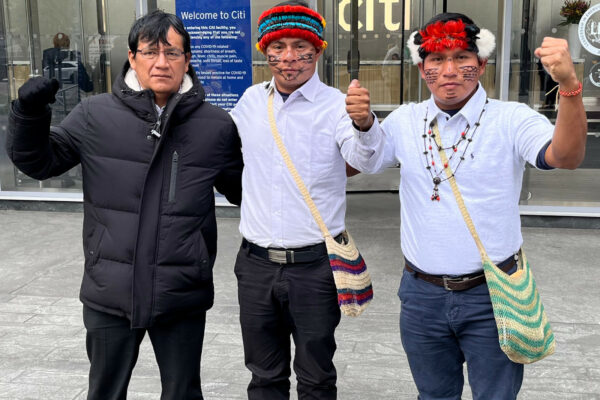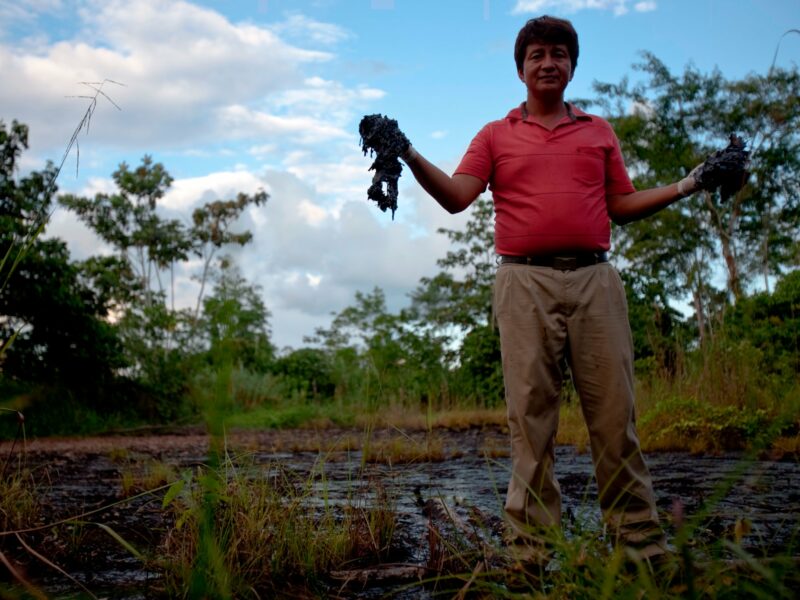Commenting on their shareholder resolution filed this week for Chevron’s 2013 AGM, US responsible investors Needmor Fund and Zevin Asset Management claimed the oil giant was employing “cannon to swat a mosquito” by initiating legal proceedings against shareholders critical of its handling of 2011’s $19bn Ecuador Amazon environmental damages court judgement.
As a metaphor it is only half right. Chevron has certainly deployed the heavy guns, wheeling out lawyers to push investors to hand over confidential correspondence concerning previous AGM resolutions. The analogy of the SRI firms as mosquitoes does not, however, do justice to the serious message they are delivering, although it is perhaps commensurate with their irritation to Chevron. The subpoenas, which are being challenged, raise the prospect that investors could be bundled into a lawsuit brought under the Racketeer Influenced and Corrupt Organizations (RICO) act against the New York-based lawyer and other plaintiffs that led the original legal case against Chevron in Ecuador. The AGM resolution says Chevron’s board should consider the impact of the latest subpoenas on long-term investor relations, the company’s reputation, and the precedent it could set for shareholder communications on key ESG issues and their impact on shareholder value. The resolution is right: Chevron’s actions are setting a dangerous example that could deter investors (RI or otherwise) from raising important concerns with the companies they own for fear of legal repercussion.
The subpoenas discount the democratic – and it should be recalled – non-binding nature of US AGM votes. They also ignore the likelihood of resolution adoption: none have so far come close to being passed by a majority, although that could change in 2013! And Chevron’s legal tack is depressingly disproportionate to the content of the shareholder resolutions it is targeting. These have sought to get it to consider better board oversight and acknowledgement of the potential liability of the Ecuadorian court judgement, to look at future ramifications to the business including reputation and financial risk, or to consider a settlement. Similar resolutions – four in total – have been filed again this year and can be seen on the website of UK lobby group, FairPensions. They include a proposal for an independent Chairman to split the existing joint Chair/CEO position held by John Watson, a dual role that counters the best corporate governance practice promoted by many shareholders. Many of these resolution proposals are now becoming mainstream investment thinking as Chevron faces the prospect of legal asset seizures in Brazil, Argentina and Canada. US courts have declined Chevron’s appeals to counter extra-territoriality of the Ecuadorian claims, although a US judge has raised concerns over aspects of the original court ruling following Chevron’s claims that the Ecuadorian legal process was flawed. A revised report published last week by securities lawyer Graham Erion, who has advised the Ecuadorian rainforest communities, claims Chevron has refused to materially amend its disclosure of the risks posed by the final Ecuador fine, despite $15bn of assets in four countries being the subject of seizure actions, and $2bn of assets in Argentina already frozen. Erion says Chevron’s 2012 third quarter disclosure revealed “no basis for management to estimate a reasonably possible loss (or a range of loss)” associated with the Ecuador fine. The report argued that this could flout FASB accounting rules on contingency for potential losses. Some investment analysts have suggested Chevron is building its cash reserves with a settlement in mind. Certainly the company has spent a significant amount of shareholders’ money on legal costs and a huge public relations campaign, which at least merit rigorous questioning. Ecuador’s legal system is covered by compulsory International Court of Justice jurisdiction, and morally – post BP Macondo – it would be difficult for the US legal system to argue that claims against foreign oil companies for environmental damage in another country should not, in principle, be recoverable. The battle is intensifying. I’m deliberately leaving aside, for the moment, the sad, complicated and politically charged nature of the Ecuador case itself.
It should be noted that it has become, however, a thoroughly modern (and depressing) PR war; each side has its own campaign website. But the issue at stake here is that investors should not be scared to ask the most difficult questions around the financial and ESG issues they deem relevant at companies. Chevron’s action imperils this principle. Other shareholders should stand squarely behind this resolution.













